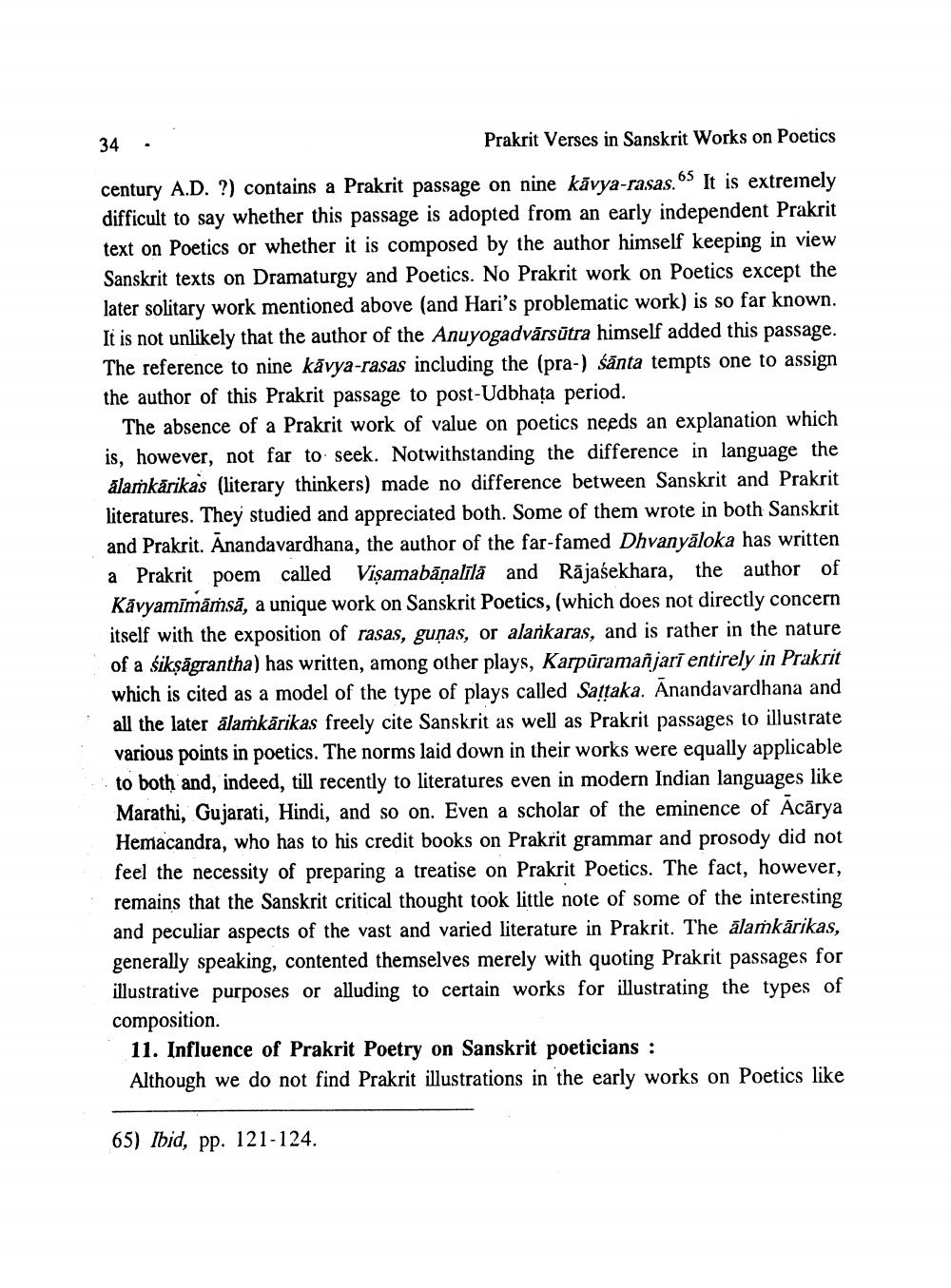________________
34
-
Prakrit Verses in Sanskrit Works on Poetics
century A.D. ?) contains a Prakrit passage on nine kāvya-rasas. 65 It is extremely difficult to say whether this passage is adopted from an early independent Prakrit text on Poetics or whether it is composed by the author himself keeping in view Sanskrit texts on Dramaturgy and Poetics. No Prakrit work on Poetics except the later solitary work mentioned above (and Hari's problematic work) is so far known. It is not unlikely that the author of the Anuyogadvārsūtra himself added this passage. The reference to nine kävya-rasas including the (pra-) śānta tempts one to assign the author of this Prakrit passage to post-Udbhata period.
The absence of a Prakrit work of value on poetics needs an explanation which is, however, not far to seek. Notwithstanding the difference in language the alamkarikas (literary thinkers) made no difference between Sanskrit and Prakrit literatures. They studied and appreciated both. Some of them wrote in both Sanskrit and Prakrit. Anandavardhana, the author of the far-famed Dhvanyāloka has written a Prakrit poem called Vişamabāṇalīlā and Rājasekhara, the author of Kāvyamīmāṁsā, a unique work on Sanskrit Poetics, (which does not directly concern itself with the exposition of rasas, guras, or alarkaras, and is rather in the nature of a śikṣāgrantha) has written, among other plays, Karpūramañjarī entirely in Prakrit which is cited as a model of the type of plays called Sattaka. Anandavardhana and all the later ālamkārikas freely cite Sanskrit as well as Prakrit passages to illustrate various points in poetics. The norms laid down in their works were equally applicable to both and, indeed, till recently to literatures even in modern Indian languages like Marathi, Gujarati, Hindi, and so on. Even a scholar of the eminence of Acārya Hemacandra, who has to his credit books on Prakrit grammar and prosody did not feel the necessity of preparing a treatise on Prakrit Poetics. The fact, however, remains that the Sanskrit critical thought took little note of some of the interesting and peculiar aspects of the vast and varied literature in Prakrit. The ālaskārikas, generally speaking, contented themselves merely with quoting Prakrit passages for illustrative purposes or alluding to certain works for illustrating the types of composition.
11. Influence of Prakrit Poetry on Sanskrit poeticians : Although we do not find Prakrit illustrations in the early works on Poetics like
65) Ibid, pp. 121-124.




